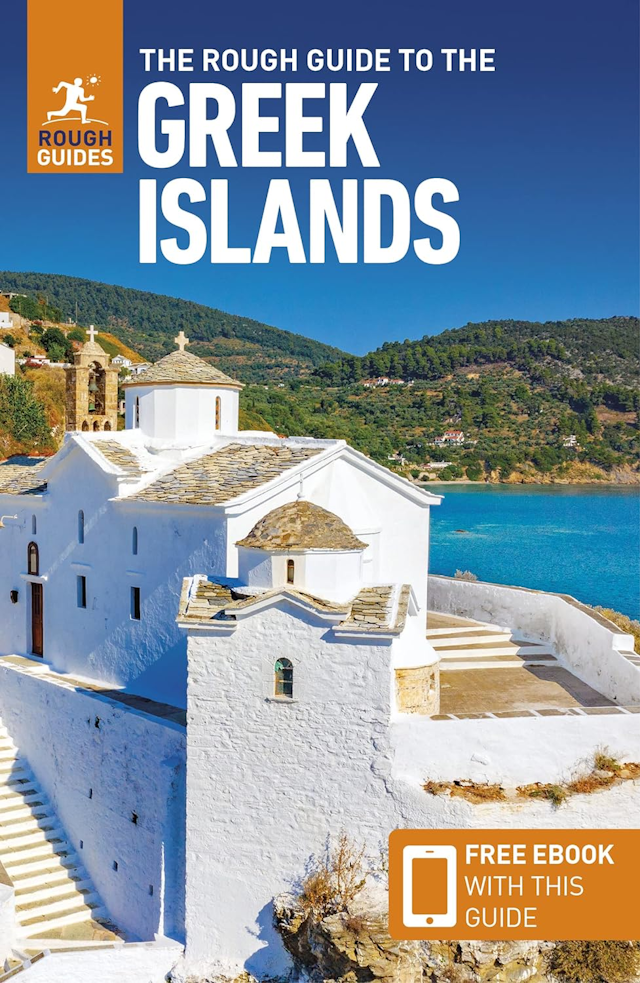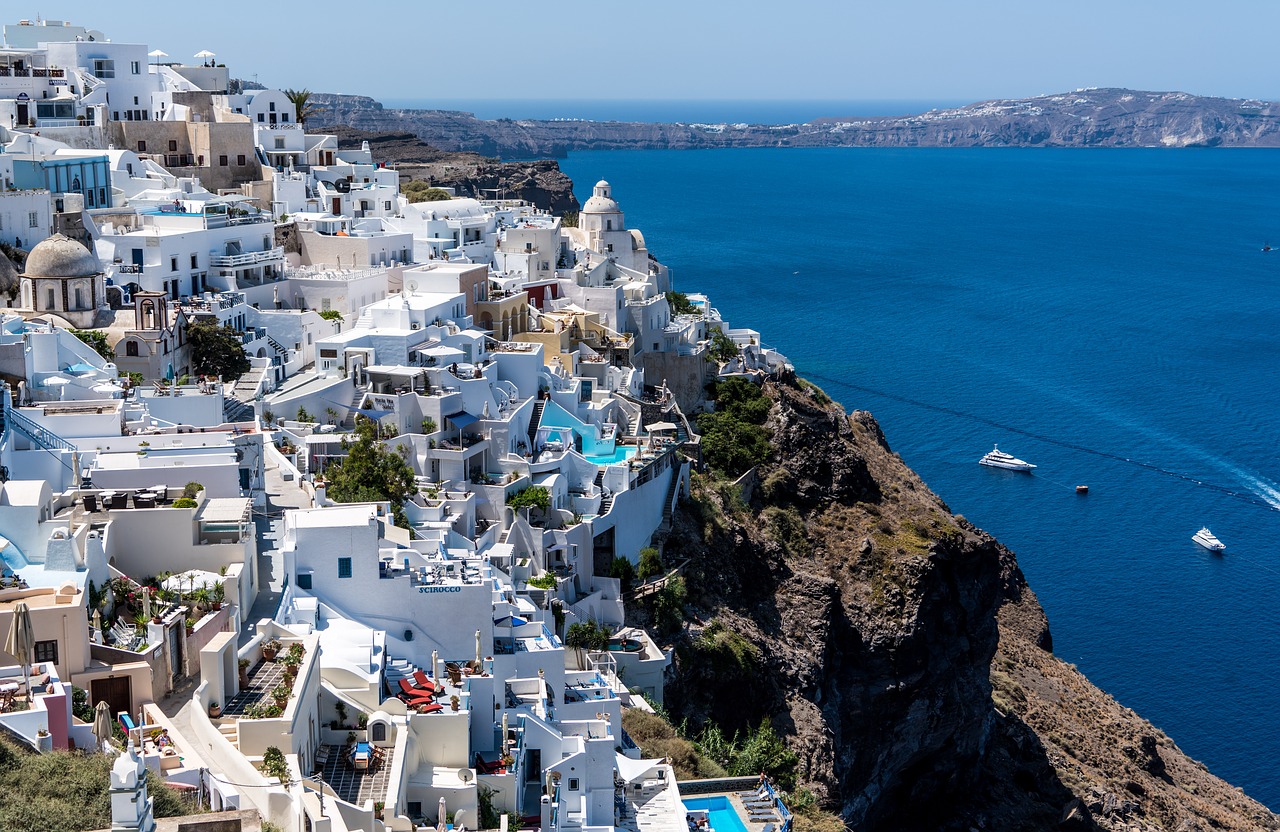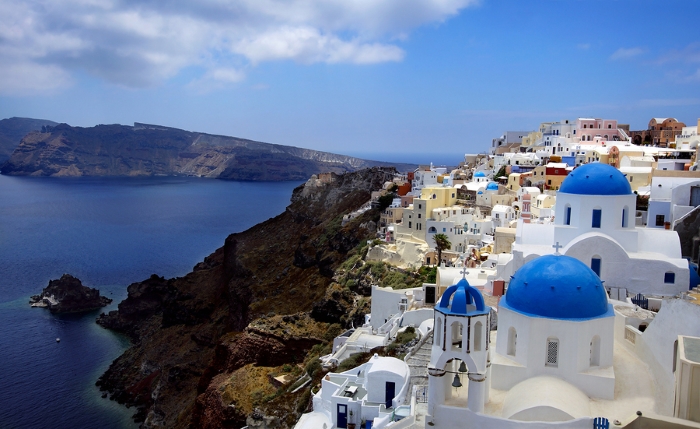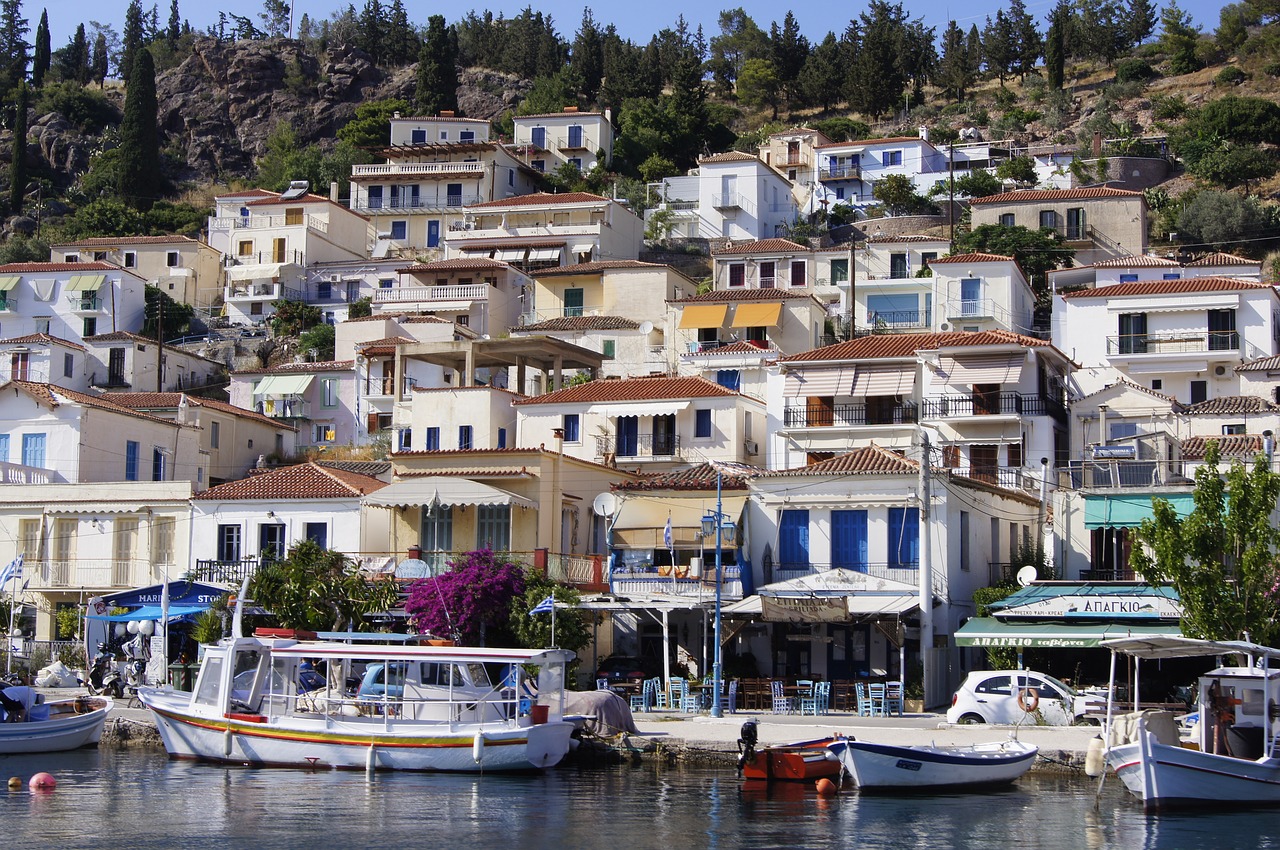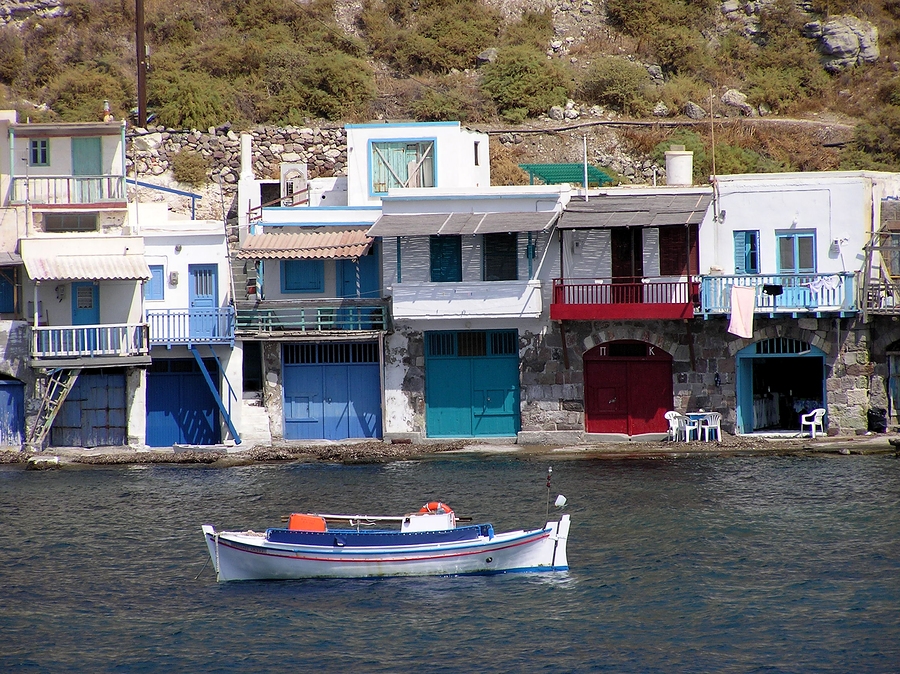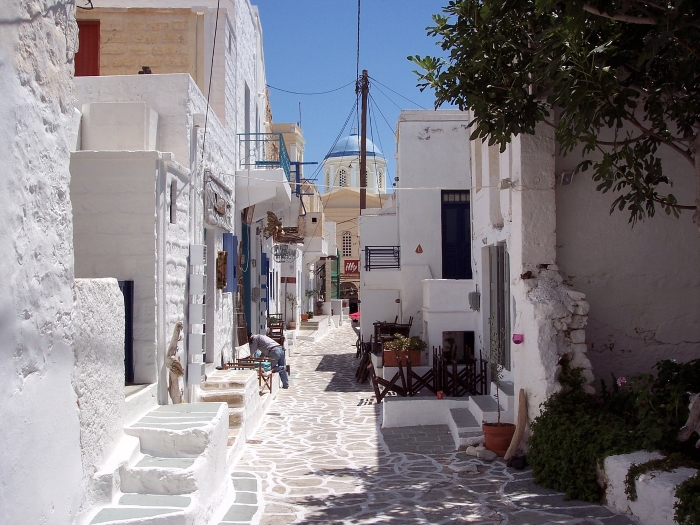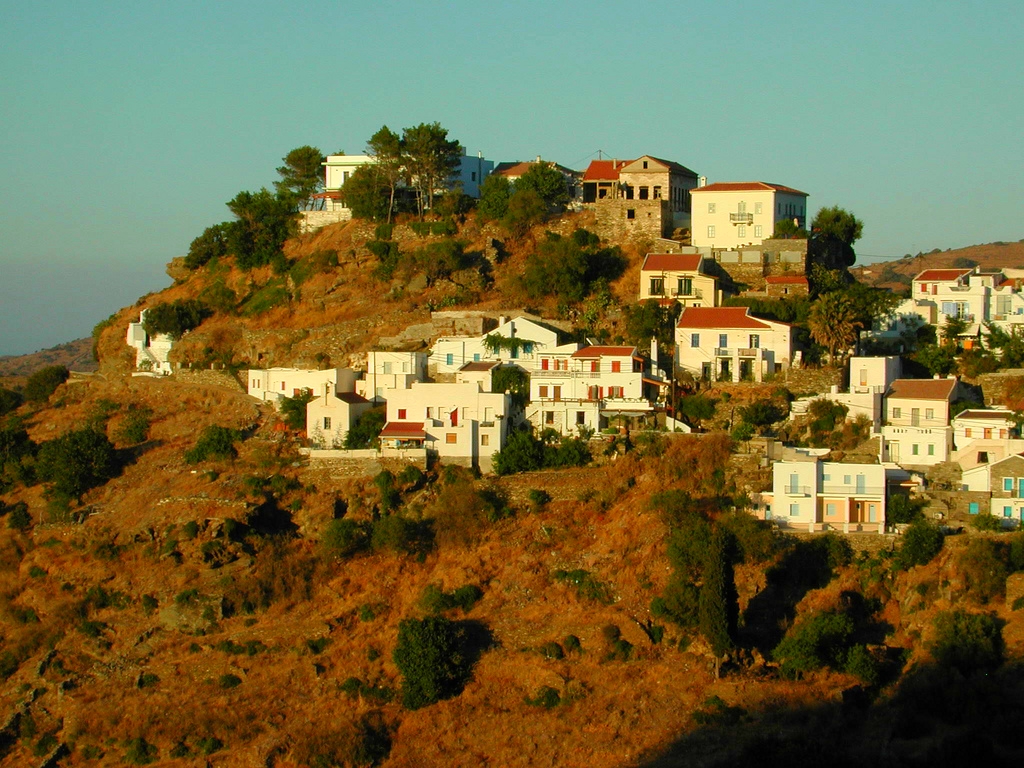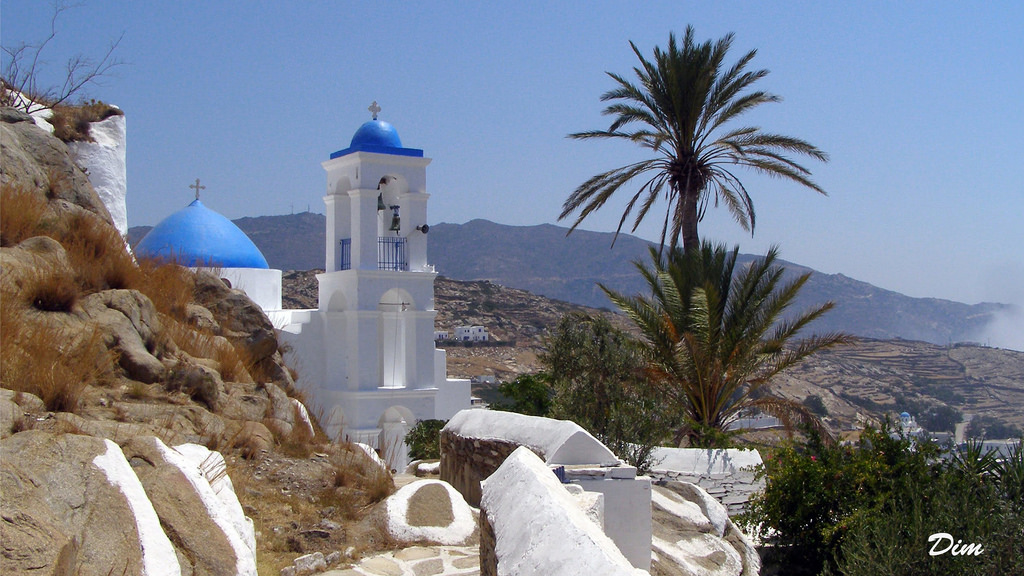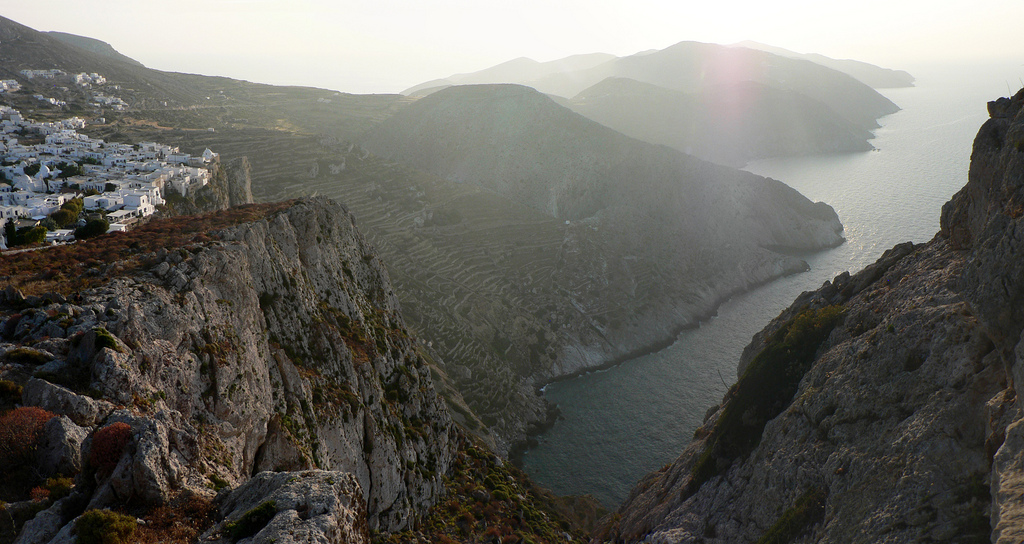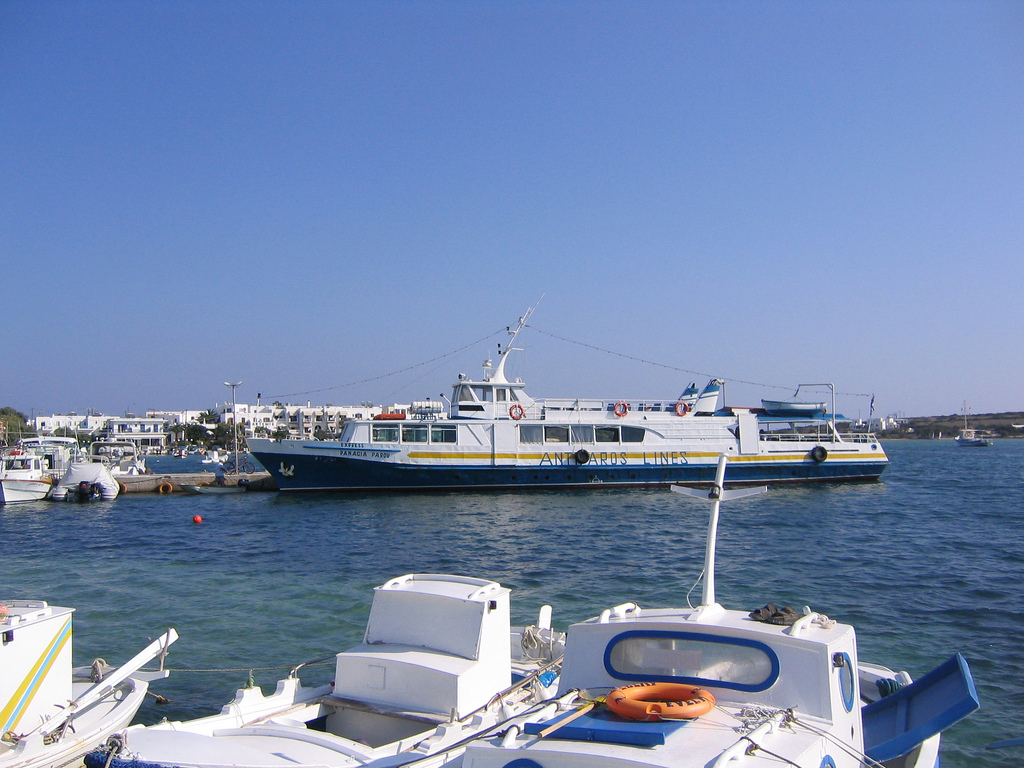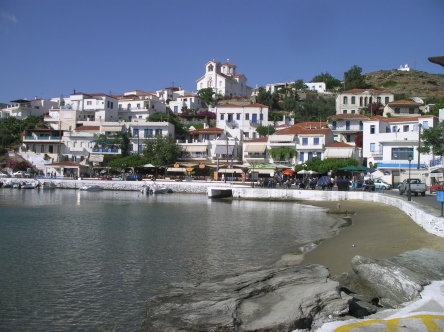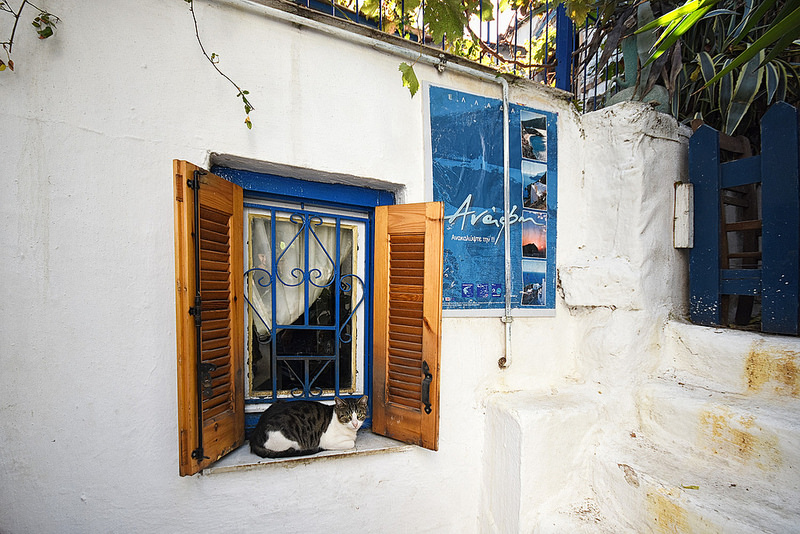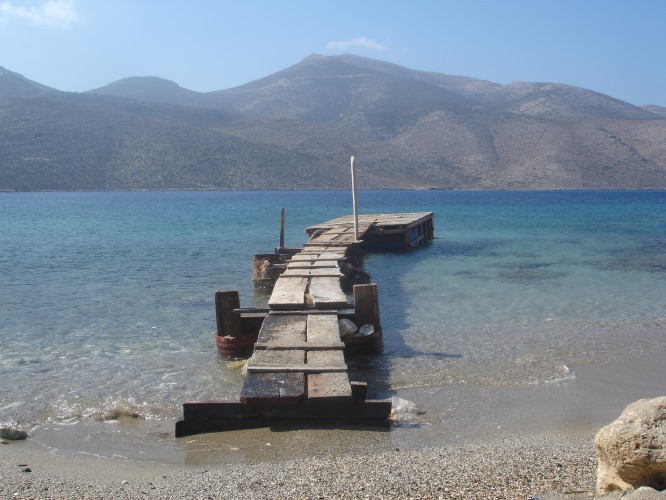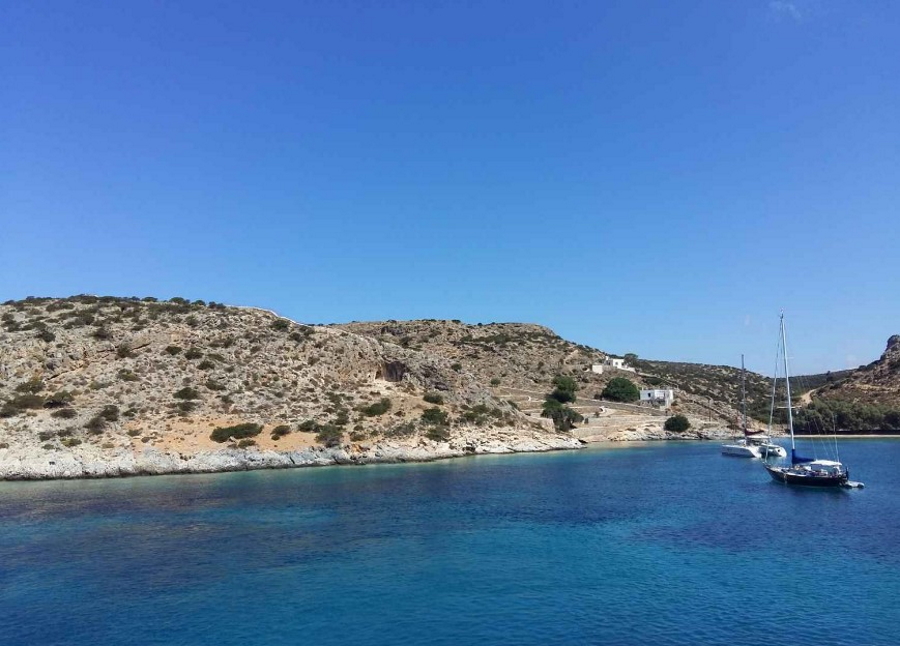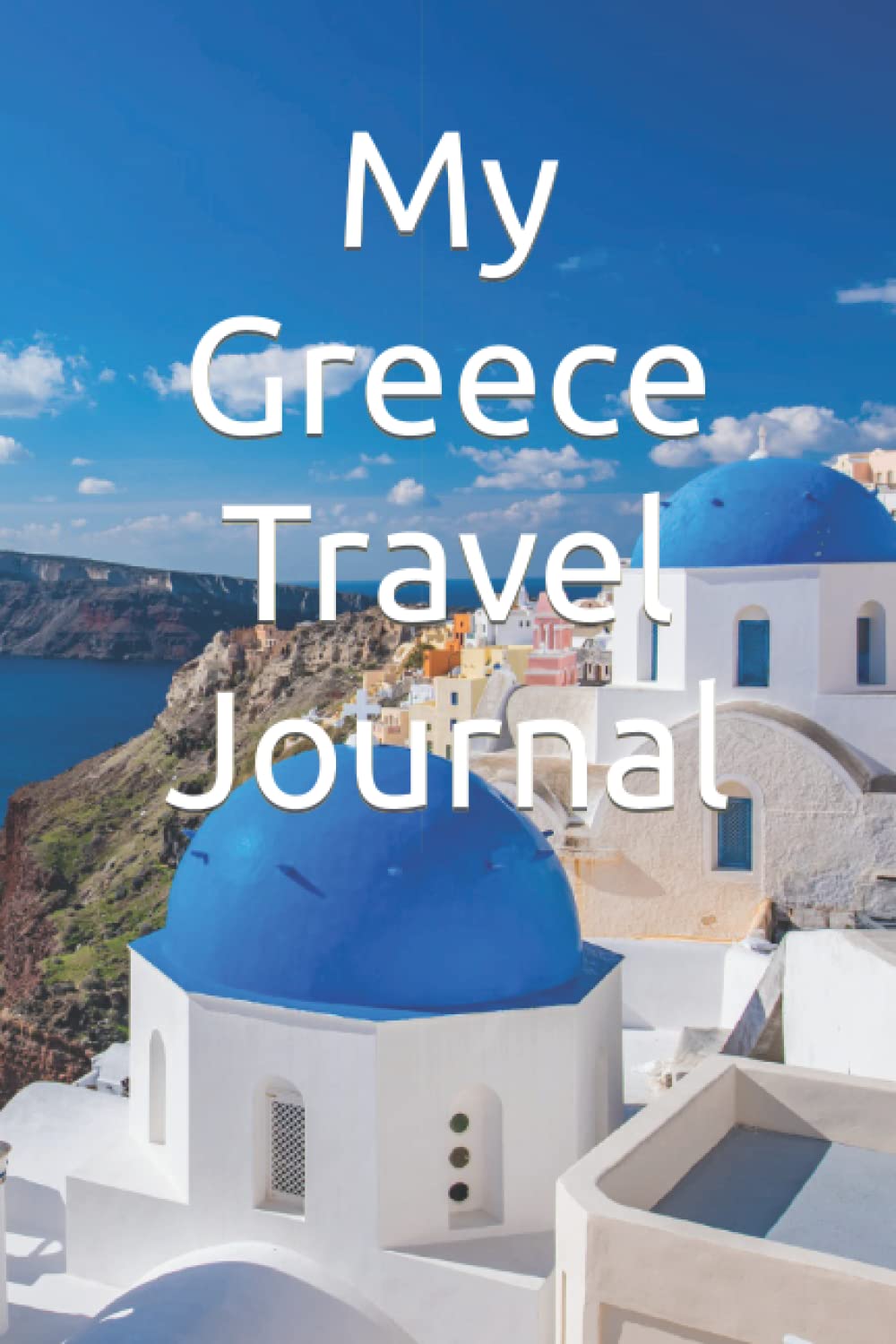Delos
Cyclades Islands
Just over two kilometers from Mykonos is the holy island of Delos. This can only be visited by means of a day trip from Mykonos as it is uninhabited and no one is allowed to stay overnight for fear of damage to what is one of the most priceless archaeological sites in Greece.

The Terrace of Lions on Delos
Delos or Dilos?
You'll find the island referred to as both Dilos and Delos. Delos is the most common English way of writing it, but in the original Greek the word is spelled Dilos.
The History of Delos
Like many of the other Cycladic islands, Delos was inhabited by the Ionians who arrived here in about 1000 BC, although it was probably first settled over a thousand years earlier by migrants from Asia Minor.
The Ionians made Delos their religious capital and dedicated it to the god Apollo, who was the father of Ion after whom they took their name. They began an annual Delia Festival of arts and sports in honour of Apollo and by 700 BC Delos was a major pilgrimage centre, like Delphi on the mainland. From this it developed into a successful port, but after the Romans left it fell into decline and became a hideaway for pirates but otherwise uninhabited.

Today Delos remains unique in Greece, cut off from the world, its ruins spread over a large area and giving a good idea of what the island must have been like in its prime. Its most famous sight is the Lion Terrace, originally nine beasts overlooking and protecting the Sacred Lake, so-called because the Lake was said to have witnessed the birth of Apollo on this very island. The lions were made of marble from nearby Naxos in the 7th century BC, though only five lions have survived the ravages of time. The original ones were removed and placed in the Archaeological Museum, leaving replicas to guard the now-dry lake.
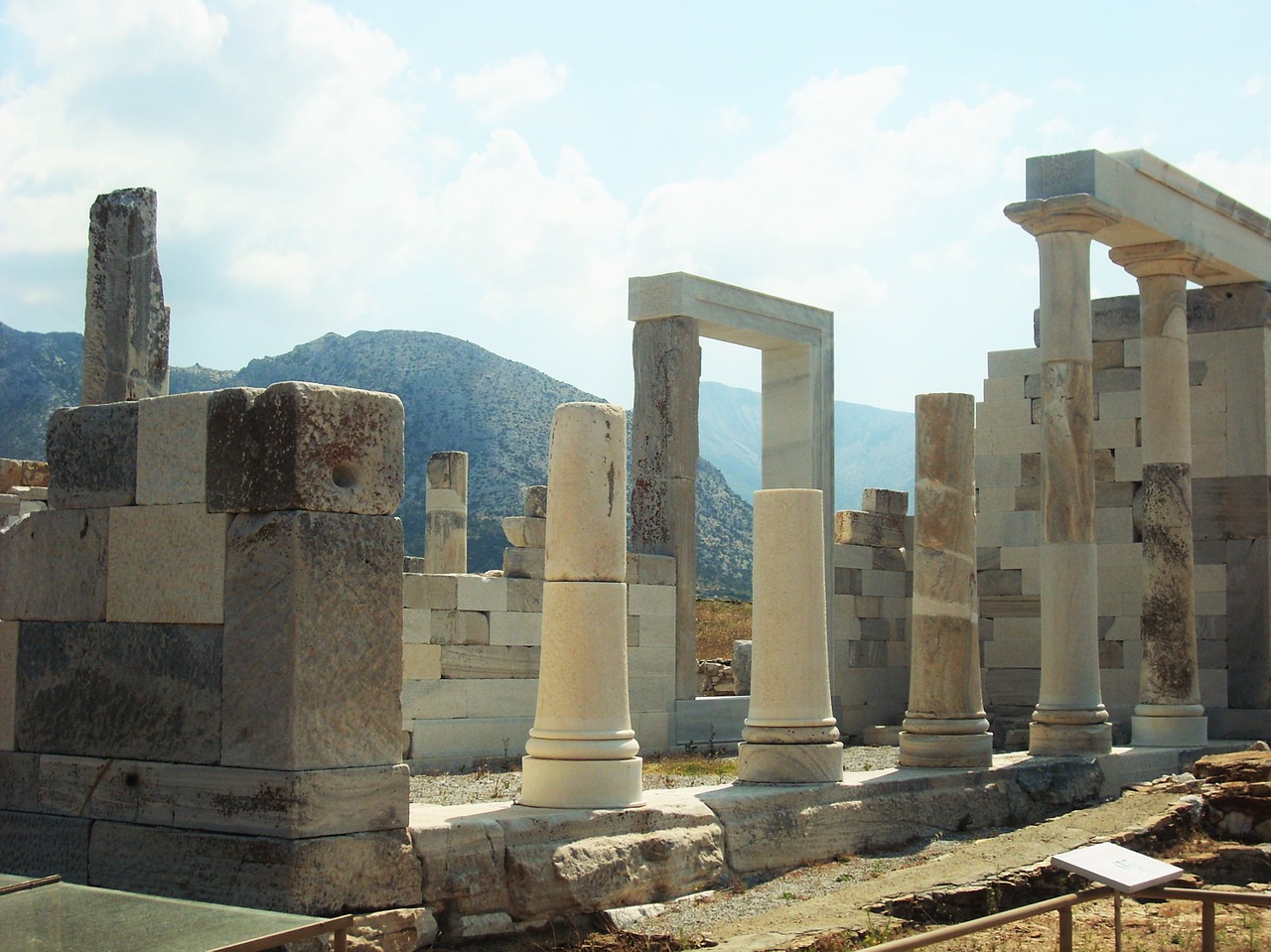
Other Delos Highlights
Other highlights include a theatre from 300 BC, beautiful mosaics in houses such as the House of the Dolphins and the House of Dionysos, a large theatre, and the Sanctuary of Apollo, with the remains of three temples alongside each other. It is a site that merits as much time as you can give it.
Visiting Delos
Boats leave Mykonos in the early morning and allow visitors to stay on Delos for a few hours before returning before the site closes, usually in mid-afternoon. There is only a small cafe on the island with limited choice of food and drinks so take some supplies with you, especially water as there is precious little shade.
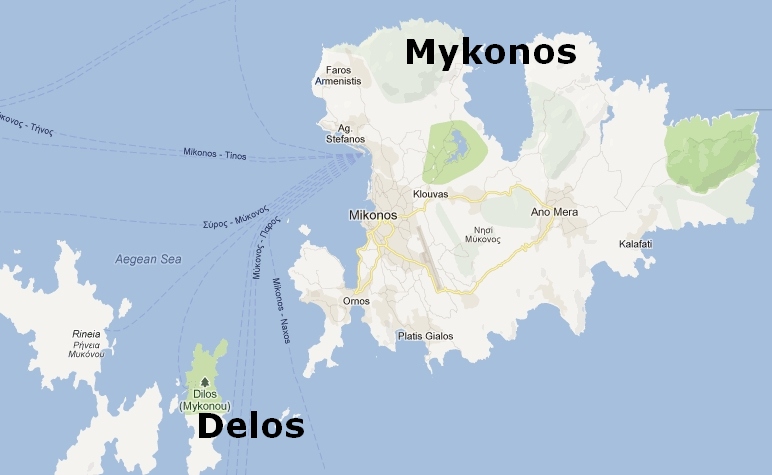
Latest Posts
-
Explore Vikos Gorge: Hiking, Rafting, and Food in Zagori
One of the most impressive canyons in Europe and one of Greece’s favorite mountain destinations, Vikos Gorge invites hikers and food lovers alike. -
Lefkada: The First Ancient Theater of the Ionian Islands Comes to Light
The first ancient theater ever discovered in the Ionian Islands is located in the heart of the ancient city of Lefkada, established before the end of the 7th century BC. -
5 Epic Island Hikes in Greece for Spring Explorers
This spring, five majestic peaks across Greece’s islands invite us to lace up our boots and discover a wilder side of island life. -
Greek Ferry Services to Halt on May 1 Due to Labor Strike
Ferries in Greece will remain docked for 24 hours on Thursday, May 1, as the Pan-Hellenic Seamen’s Federation (PNO) joins Labor Day mobilizations announced by the General Confederation of Greek Labor… -
Sifnos: Greece’s Hidden Culinary Star on the Rise
Sifnos, a Cycladic island, is gaining fame for its rich culinary heritage, especially the beloved melopita honey-cheese tart. -
Easter in the Mystical Castle of Monemvasia
In the castle town of Monemvasia, with its dramatic medieval backdrop and sea views, Easter is a deeply spiritual and atmospheric experience. -
Easter in Leonidio: A Tapestry of Light, Culture and Cliffs
In Leonidio, Easter comes alive with handmade hot air balloons in the sky and lanterns made from bitter oranges in the streets. -
The Lesser-Known Traditions of Greek Easter
Step off the beaten path this spring and discover the enchanting — and often surprising — Easter traditions found across Greece. -
April 9 Strike in Greece to Impact Public Transport, Ferries and Air Travel
Transportation and travel across Greece will face disruptions on Wednesday, April 9, as public transport, ferry and aviation workers join a nationwide strike called by Greek labor unions. -
Ancient Theater of Lefkada Brought Fully to Light Following Systematic Excavation
The Greek Culture Ministry has announced that the first ancient theater ever identified in the Ionian Islands has recently been brought fully to light on Lefkada, revealing an impressive monument that…
